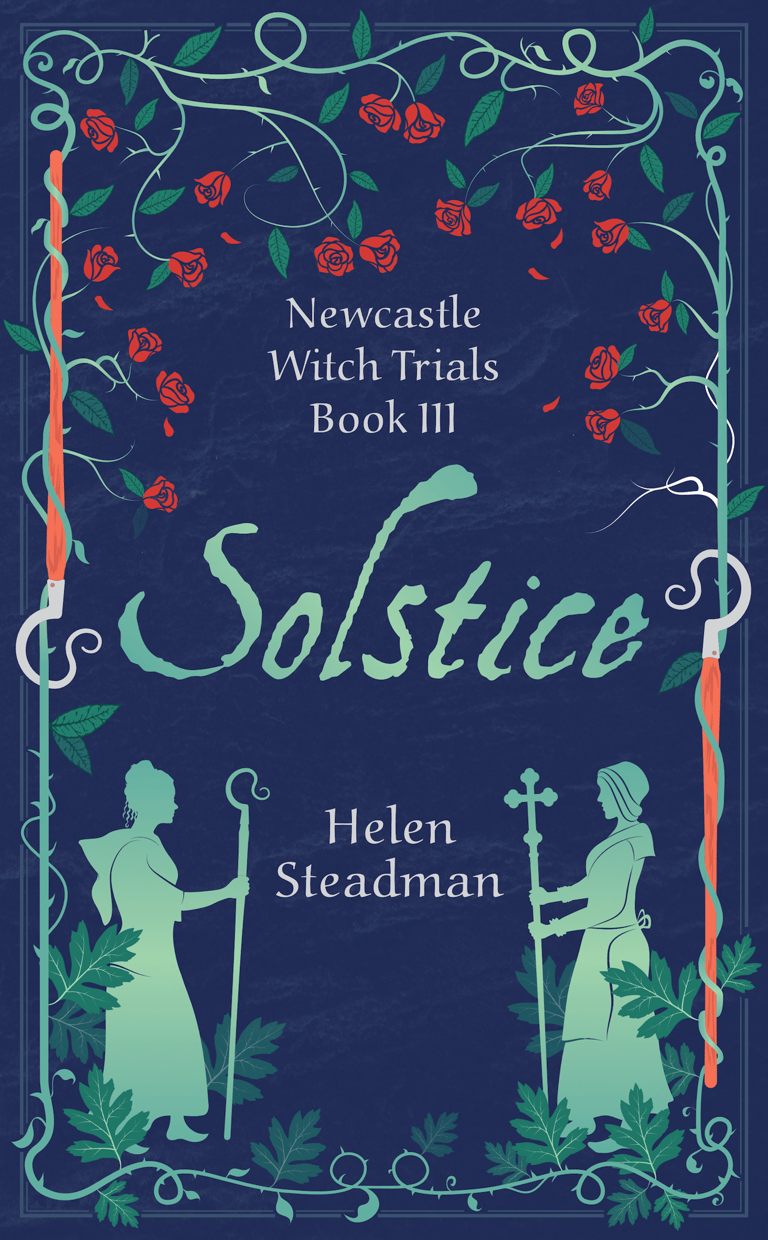Solstice
(Newcastle Witch Trials: Book 3)
Revisit a world of fear and superstition in Helen Steadman's Solstice.
Seventeenth-century England. In a world where witches are still feared and witch trials are commonplace, Rose Driver faces a terrifying prospect: the witch hunter is back.
When a new vicar arrives to take over the parish of Mutton Clog, the village finds itself in the grip of Puritan fever, and suspicious eyes are turned on Rose.
This innocent shepherdess lives in the shadow of the atrocities committed by witchfinder John Sharpe, who put her mother, brother and grandmother to death almost quarter of a century ago.
With her family gone, will Rose be able to protect herself from accusations of witchcraft? Find out in Solstice, the powerful conclusion to the trilogy.
The Newcastle Witch Trials Trilogy was inspired by the little-known witch hunt where fifteen women and one man were executed on a single day in August 1650.
© Helen Steadman 2023
Review by the Historical Novel Society
Although presented as a standalone novel, Helen Steadman’s Solstice brings with it strong elements of the two volumes which preceded it in her Widdershins Trilogy, Widdershins and Sunwise.
When the Rev Leaton and his family are unwillingly forced, by allegations involving witchcraft, to relocate from comfortable Ely to Mutton Clog, a bleak and remote parish in Durham, the troubles which brought about this transfer soon escalate. What follows is a scenario that seethes with menace and with a sustained degree of malevolence that exceeds anything I have ever before encountered. The central characters (barely less than evil and seldom more than innocently foolish) struggle under the cloud of witchcraft accusations and suffer bleak conditions, drawing misfortune and disasters upon themselves, each other and all those who become involved with them.
Rose, a local girl, and Patience, daughter of the incoming incumbent, carry the two central and robust storylines. While Rose, innocent but foolish, falls victim to her own poor judgement, Patience, a flawed and unremittingly cruel character, accuses her of witchcraft and sets about destroying her, subjecting her to treatment which, at times, she seems unlikely to survive.
As incidents reveal the tarnished and destructive histories of locals and incomers alike, the writer draws her characters, half-starved and shivering, through their miserable storylines and delivers them, beaten but in some cases unbowed, to their various resolutions. There is well managed tension by now, which eventually delivers a compelling courtroom denouement.
Helen Steadman is mistress of her subject here and fluently incorporates her impressive knowledge of the situations she describes. In Solstice she has created a vivid and disturbing world and peopled it with worryingly memorable characters. This is a compelling “not to be missed” novel.
Julia Stoneham


